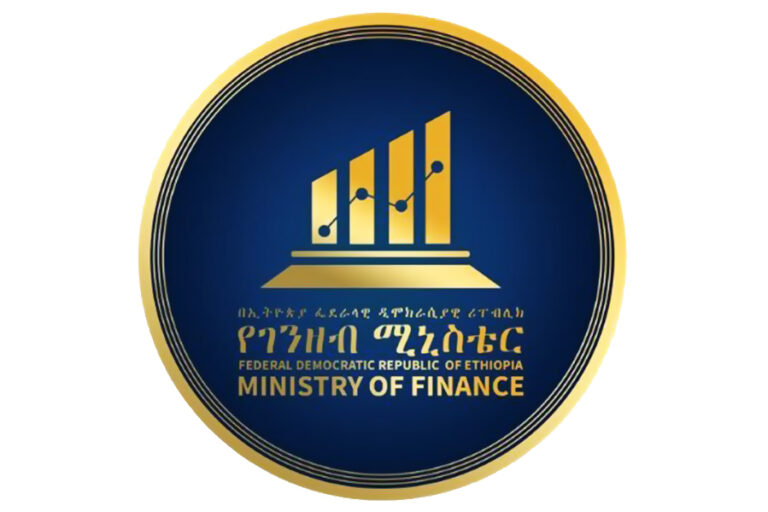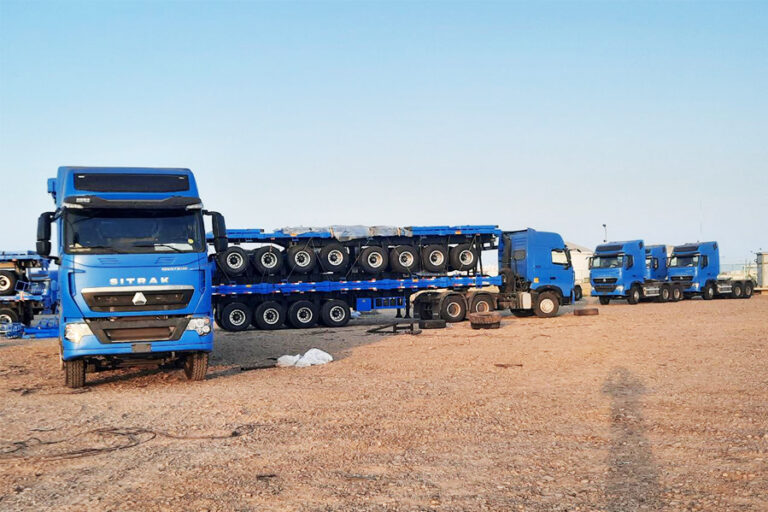February 2022 general year-on-year inflation stands at 33.6 percent showing slight decrease after reaching 34.5 percent in the previous month, according to the Central Statistics Agency (CSA) monthly report.
The year-on-year food inflation has increased by 41.9 percent in February 2022 as compared to the one observed in February 2021. In the current month, cereals showed an increase in most cases, while, vegetables showed a decline as the report stated.
Teff, wheat, maize and sorghum showed price increase in most cases, as, milk, cheese and eggs, and spices (mainly salt and pepper) cooking oil and butter slightly increased in the current month. In addition coffee beans and non-alcoholic beverages prices have also increased continuously.
The non-food inflation showed an increase of 22.9 percent in February 2022 as compared to the one observed in February 2021.
The rise in non-food inflation was mainly due to rise in the prices of alcohol and tobacco, stimulants (chat), clothing and footwear, housing repair and maintenance (house rent, cement and corrugated iron sheets), and energy (firewood and charcoal), furniture and home furnishings, fuel, medical care and jewelry (gold).
Inflation based on comparison of current and last month at country level general Consumer Price Index (CPI) for February 2022 has showed an increase of 3.4 percent and the food items inflation increased by 4.8 percent as compared to the preceding month of January 2022. During the same period non-food CPI has shown 1.4 percent increase.
According to the report, the February 2022 country level CPI has increased by 34.5 percent as compared to February 2021. Also the country level overall inflation rate rose by 29.1 percent in February 2022 as when contrasted to a similar period of a year ago, according to CSA.
The country level food inflation increased by 34.7 percent as compared to the one observed a year ago while non-food inflation rate increased by 21.9 percent in February 2022 as compared to the one observed in February 2021.
This increase in the general consumer price index has been attributed to the rise observed in the indices of food and non-alcoholic beverages 41.9 percent, alcoholic beverages and tobacco by 32.0 percent, clothing and footwear by 19.7 percent, house rent, construction materials, water and fuel and power by 17.9 percent, furniture, furnishings, household equipment and operation by 42.2 percent, health 37.9 percent, transport 6.8 percent, communication by 4.4 percent, recreation and culture by 46.7 percent, education by 28.4 percent, restaurant and hotels 24.6 percent and miscellaneous goods by 26.2 percent.
Year on year inflation narrows in February
PANIC ON PLANET PRIVILEGE
Privileges are now the focus of attention, yet again. Late modernity, which systemically insulated the very few from earthly toil, at the expense of the sweat and blood of the many, is facing increased mayhem vigorously threatening to undo unfairly bestowed privileges the world over. This ascending bold orientation of the disillusioned sheeple has become a formidable challenge to the power that be. The prevailing global status quo, propelled by polarizing globalization, has and continues to cause chaos, migration and wars. On the other hand, a potent transformative and liberating agenda of the downtrodden still awaits coordinated global leadership that is yet to emerge! Why all of a sudden such a ‘Great Refusal’ by the global sheeple to go along with the current flow?
To be sure, this unfolding phenomenon is not an ‘all of a sudden thing.’ The global sheeple has been on this slippery slope ever since the ideology of neoliberalism ascended to the throne of dominant economic thinking. In the third world countries, development economics was demoted and at times completely discarded in favor of unfettered crony capitalism, always at the service of neoliberalism. In the core countries of the system, extreme financialization ensued after the demise of the Bretton Woods agreements (1971), giving rise to interstate sanctioned fiat money. The fraudulent system of fractional reserve banking, coupled with fiat money, is the root cause of polarization, both within and between countries. The main problem of financialization is; it unashamedly and generously caters almost exclusively to the incestuous world of rarefied finance, while neglecting, almost categorically, productive activities. Bankers and their hangers on (states, etc.) employed credible sounding discourses to impart an aura of scientific analysis behind the monopoly money they profusely create, so that they can get away with murder, so to speak! As expected, the resultant polarization and downstream consequences have now come home to roost. What gives?
Enter ‘crypto-currencies’ and ‘blockchain’! These two innovations of the Internet technology are recent additions to the burgeoning arsenal of the uncoordinated but gradually coalescing strategy of the sheeple, which we can call the ‘Great Refusal.’ These new Internet technologies are being built around the central issue of peer to peer (p2p) exchanges, be they information, values, etc. The bluntly stated objectives of both crypto currencies as well as the powerful processes of the blockchain technology are, 1) to cut out the middle meddlers: like banks, when it comes to money, loan, etc.; brokers, in transactions (financial or otherwise); lawyers/consultants in the intentionally devised obscurant world of litigations, etc. 2) to organically incorporate integrity within all interactions. Don’t forget; the middle meddlers of the world system are the ones who have been immensely benefitting from the polarized global order, more than the working stiff in production and services. The battle between those who want to keep things as they are and those who want to change them, is not only restricted to the world of Internet technology. In fact, aspects of the war of liberation are coming back to the old traditional spaces within the human collectives. Unearned and undeserved privileges are being interrogated in all societies, in various forms!
All sorts of autocratic governments and their sheltered operators/manipulators, ranging from the oil monarchies of the Middle East to dictators of the third world, are in panic modes. They are extremely anxious of their impending fate, even though they are not willing to change or even compromise their wicked ways. Amongst other things, these governments want to shut down independent media, curtail alternative views, frustrate critical discourses, etc., so that the sheeple will remain ignorant about all and sundry. It is more or less the same elsewhere, whether in the first, second or third world countries, though restrictions might be more subtle and nuanced in richer societies.
Admittedly, traditional labor (organized) is very unlikely to propose alternatives acceptable to all. First, it has become a marginalized collective, for obvious reasons. Secondly, its appreciation or awareness of intractable complexities that abound in current societies makes it ill equipped/prepared to lead universal global movements, though its contributions will still remain immense, just like before! Importantly, the new globally oriented liberating drive must, perforce, congregate around the important task of saving planetary life from the destructive tendencies of the prevailing ‘economism’ of dominant interests. At this late hour, humanity cannot afford to get bogged down only in the discourse of ‘mode of production’, a la the traditional ideology of organized labor. Most importantly, in the process of trying to change the global system, the global sheeple should not be sucked, yet again, in wars of the bankers (remember; all wars are banker’s wars)!
Gov’t puts Tele’s partial privatization on hold
Government halts the partial privatization of Ethio telecom for an unspecified time.
The postponement comes in the wake of recent developments and fast moving micro economic changes both globally and from country’s perspective as analyzed by the statements of the Ministry of Finance and Public Enterprises Holding Administration Agency.
“The government of Ethiopia believes that taking time to accommodate the improved macroeconomic situations as well as continually improving financial performance of Ethio telecom will result in better value for all the parties involved and in particular the citizens of Ethiopia,” reads the statement.
It is to be recalled that as part of the home grown economic reform programs the government had laid out a frame work for the privatization of public enterprises under the public enterprise proclamation no 1206/2020 in order to broaden the role of the private sector in Ethiopia’s economy. In line with the program, the government proposed a partial privatization of Ethio telecom by selling 40 percent of the equity share capital of the company and to that regard September 14, 2021 saw the Ministry of Finance (MoF) requesting eligible bidders to submit their proposal.
The Ministry of Finance which is responsible for the follow up process alongside the Public Enterprises Holding Administration Agency then issued the expression of interest on mid-June last year which closed after a month. The process was then met by the issuance of a request for proposal on September inviting interested parties who can add value to the company by bringing in best practices in terms of operations, infrastructure management, and next-generation technological capabilities.
“The government of Ethiopia remains committed to finalize the privatization process and looks forward to re-engaged in due courses with existing and additional parties that have expressed interest in the privatization,” noted the finance ministry and the administration agency.
As part of breaking up its monopoly hold over the sector, Ethiopia last year also issued a tender to award two licenses to private telecommunication operators.
In late last May, one license was awarded to a consortium led by Kenya’s Safaricom, which offered $850 million and promised to invest $8.5 billion over 10 years.
In related news, on December, Ethiopian Communications Authority (ECA) also announced that the process of selecting the second telecom operator had been postponed. ECA stated that the bidding process has temporarily been relinquished as per the request of bidders.
Procured trucks to hit the ground running by loading fertilizer
Ethiopian Shipping and Logistics Service Enterprise’s (ESLSE) brand new trucks arrive at Djibouti with their entry to Ethiopia with the first batch of fertilizer cargos being expected to start as early as this coming week.
It is to be recalled that the sea and land logistics giant procured 38 trucks directly as per the country procurement rule from the former supplier, Jinan Sinotruck Co, which won the bid for the procurement of 150 Sino trucks about a year and half ago.
The country’s law allowed the enterprise to procure up to 25 percent additional product or service directly besides the original biding volume or amount.
As a result, the Chinese prominent truck manufacturer agreed to supply additional 38 trucks on the same winning unit price, which was given for the 150 trucks last year.
ESLSE has stated that the latest procurement consumed 194 million birr. The trucks that arrived in Djibouti this week will be assembled at the same there, and will start their operation by transporting fertilizer cargo which was imported for the upcoming agriculture season.
Wondimu Denbu, Deputy CEO for Corporate Service at ESLSE, told Capital on Friday March 18 that the trucks have already been assembled. He said that relevant officers from the transport authority and Customs Commission will travel to Djibouti on Saturday to provide relevant documentation and plate numbers for the trucks.
“We hope that starting from Tuesday, the new trucks shall commence their voyage to Ethiopia with fertilizer cargos,” he expressed his expectation.
Currently, ESLSE has 450 operation heavy-duty trucks and to which the 38 trucks will beef the number to 488.
About five years ago, 215 trucks were purchased from the French automotive company, Renault Trucks. As the norm of ESLSE, the new fleet will allow the enterprise to exclude the long-serving and economically inefficient trucks from its cross-border operation.
Jinan Sinotruck Co, which is known for its heavy-duty trucks, Sinotrucks, was the company that won last budget year’s bid to supply 150 Sinotruck vehicles at the cost of 11 USD million.
ESLSE is also under preparation to procure additional 150 heavy duty trucks through international bid. It is to be recalled that few weeks ago, the multimodal monopoly annulled the first biding due to lower interest of biding companies. The bid document is said to be revised and refloated.
According to Wondimu, the bid has already been refloated and interested bidders have been buying the document, and the bid is expected to be opened in the coming month.
New box
The logistics giant has also concluded the procurement of additional 5,000 containers on international bid from the Chinese company CCCC. According to the Deputy CEO, ESLSE’s owned containers have clocked to more than 13,909 TEUs.
At the beginning of the budget year, ESLSE had announced that it was working to manage the containerized consignment challenges under short and mid term plans. The global phenomenon stemming from the COVID 19 pandemic however created cargo boxes shortage not only for ESLSE but also for the sector in general, globally.






